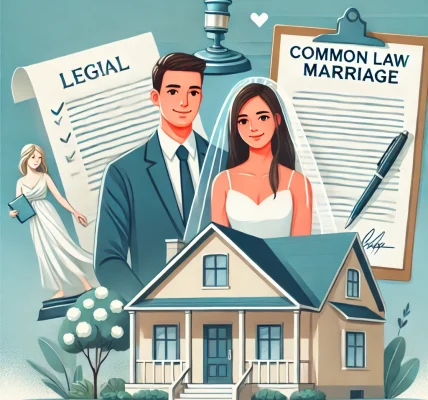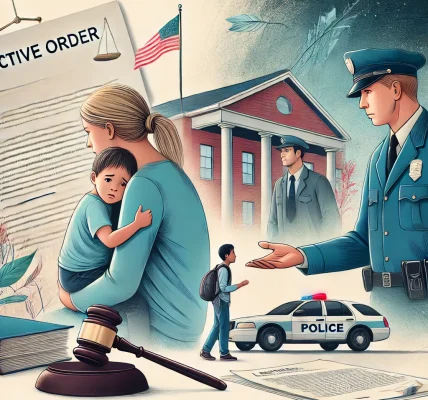Grandparents play an essential role in a child’s life, offering emotional support, guidance, and a sense of family continuity. However, when family disputes arise, especially in cases of divorce, separation, or parental death, grandparents may find themselves uncertain about their legal rights. Understanding these rights can help grandparents navigate complex family law situations while maintaining strong relationships with their grandchildren.
This guide explores the legal rights of grandparents, including visitation, custody, and guardianship, while ensuring compliance with legal boundaries.
1. Understanding Grandparents’ Rights
Grandparents’ rights vary by state or country, but generally, they fall into three key areas:
- Visitation Rights: The right to spend time with grandchildren
- Custody Rights: The right to seek legal custody if the child’s well-being is at risk
- Guardianship Rights: The right to make legal and financial decisions for the child under specific circumstances
Each of these rights depends on legal standards and court discretion.
2. Grandparents’ Visitation Rights
Many jurisdictions recognize the importance of grandparents in a child’s life and allow them to petition for visitation rights. Courts typically consider the following factors when granting visitation:
- The child’s best interests
- The existing relationship between the grandparent and the child
- The parents’ wishes and reasons for restricting access
- The impact on the child’s emotional well-being
In some cases, if both parents are alive and object to visitation, courts may be less likely to grant access unless there is a compelling reason.
3. When Can Grandparents Seek Custody?
Grandparents can seek custody in certain situations, such as:
- Parental Unfitness: If the parents are abusive, neglectful, or unable to care for the child
- Parental Death or Incapacity: If one or both parents are deceased or legally incapacitated
- Abandonment: If the parents have abandoned the child
- Substance Abuse Issues: If the parents have ongoing drug or alcohol abuse problems
Courts generally prioritize biological parents in custody cases but may grant custody to grandparents if it is in the child’s best interest.
4. Guardianship vs. Custody: What’s the Difference?
Grandparents may seek guardianship instead of custody, depending on their legal situation.
- Custody: A more permanent arrangement that can grant full parental rights
- Guardianship: A legal responsibility to make decisions for the child, often temporary, without terminating parental rights
Guardianship is often granted when parents cannot care for the child but may regain parental rights later.
5. How to Petition for Grandparents’ Rights
If you are a grandparent seeking legal rights, follow these steps:
- Consult a Family Law Attorney: Legal professionals can provide guidance on your specific case.
- File a Petition in Court: Depending on your claim (visitation, custody, or guardianship), file the necessary legal paperwork.
- Gather Supporting Evidence: Provide proof of your existing relationship with the child and reasons why your involvement is beneficial.
- Attend Mediation (if required): Some courts require family mediation before a formal hearing.
- Prepare for a Court Hearing: If mediation fails, present your case in court with legal representation.
6. Challenges Grandparents May Face
While many courts recognize the importance of grandparents, legal challenges can arise:
- Parental Objections: If both parents oppose visitation, courts may be hesitant to intervene unless there’s harm to the child.
- State-Specific Laws: Some jurisdictions have stricter requirements for granting grandparents’ rights.
- Financial Burden: Legal battles can be costly, requiring court fees and attorney expenses.
7. Alternative Options for Maintaining Relationships
If legal routes prove challenging, grandparents can explore alternative ways to maintain a bond with their grandchildren:
- Maintaining Open Communication: Keeping a positive relationship with the parents can encourage ongoing visits.
- Utilizing Family Mediation: Mediation may help resolve disputes without court intervention.
- Using Technology: If in-person visits are restricted, virtual communication through video calls can help maintain a strong connection.
8. What Happens If a Parent Restricts Visitation?
If a parent restricts a grandparent’s access to the child without a valid reason, the grandparent can:
- Attempt to resolve the issue through family discussions
- Request mediation to negotiate an agreement
- File a petition for visitation rights in court
The success of these actions depends on the legal framework in the grandparent’s jurisdiction.
9. Special Considerations in Adoption Cases
If a child is adopted by someone other than a stepparent or relative, grandparents’ rights may be terminated. However, some jurisdictions allow continued visitation if it is deemed beneficial for the child.
10. Final Thoughts
Grandparents play a vital role in a child’s emotional and social development. While legal options exist to secure visitation, custody, or guardianship, courts always prioritize the child’s best interests. Consulting a family law attorney is crucial for navigating complex legal matters effectively.
By understanding their legal rights and responsibilities, grandparents can take proactive steps to ensure they remain an essential part of their grandchildren’s lives while respecting legal boundaries.




